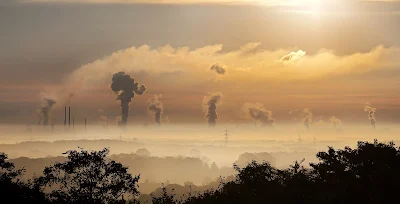Distribution of Global Carbon Emissions (2016-2022)
"Nation-States" : 38%
"State-Owned Entities" : 37%
"Investor-Owned Companies" : 25%
In recent years, the
discourse surrounding climate change has intensified as the consequences of
global warming become increasingly apparent. Despite international efforts to
mitigate greenhouse gas emissions, a concerning reality persists: a small number
of companies are responsible for a significant portion of the world's carbon
dioxide output. Understanding the dynamics behind this phenomenon is crucial in
our collective pursuit of a sustainable future.
Unveiling
the Carbon Majors
A recent report from
the Carbon Majors Database has shed light on a startling statistic: only 57
companies have accounted for a staggering 80 percent of global carbon dioxide
emissions between 2016 and 2022. This revelation underscores the
disproportionate impact of a handful of entities on the planet's climate
system.
The
Breakdown: Nation-States vs. Corporations
Interestingly, the
report delineates the sources of these emissions, revealing that 38 percent
emanated from nation-states, while state-owned entities and investor-owned
companies contributed 37 percent and 25 percent, respectively. This breakdown
highlights the varied nature of the entities responsible for driving carbon
emissions, emphasizing the need for a multifaceted approach to address the
issue effectively.
The
Paradox of the Paris Agreement
The adoption of the
2015 Paris Agreement marked a significant milestone in the global fight against
climate change. However, the Carbon Majors report unveils a disconcerting
paradox: despite international commitments to reduce greenhouse gas emissions,
58 of the 100 state- and investor-owned companies tracked in the database have
escalated their production levels in the years following the agreement. This
trend raises questions about the efficacy of current regulatory frameworks in
curbing emissions and underscores the urgency of stronger, more enforceable
measures.
Global
Reach: A Comprehensive Assessment
An analysis of the
Carbon Majors Database reveals the global reach of these carbon-emitting
entities. Producers from Asia, Europe, and North America collectively account
for a significant portion of the emissions, with notable concentrations in key
regions such as Asia. This geographical distribution underscores the
interconnected nature of the climate crisis and emphasizes the need for
coordinated, international action to address it effectively.
Coal's
Resurgence: A Cause for Concern
Despite growing
awareness of the environmental impacts of fossil fuels, coal consumption has
experienced a troubling resurgence in recent years. The International Energy
Agency's findings indicate an eight percent increase in coal consumption over a
seven-year period, reaching a record high of 8.3 billion tons. State-owned
entities such as Coal India feature prominently among the top carbon dioxide
producers, signaling the persistent reliance on coal as an energy source in
certain regions.
Key
Offenders: Spotlight on Corporate Giants
Within the realm of
corporate emissions, certain entities stand out as major contributors to global
carbon dioxide levels. Exxon Mobil, for instance, emerged as the top emitter
among United States companies, accounting for 1.4 percent of global emissions.
This pattern is mirrored on a global scale, with state-owned behemoths such as
Russia's Gazprom and Saudi Arabia's Aramco also featuring prominently among the
top offenders.
Addressing
Corporate Accountability
The findings of the
Carbon Majors report underscore the pressing need for enhanced corporate
accountability in addressing climate change. Despite profiting from fossil fuel
extraction, many companies have engaged in activities aimed at obfuscating
their role in exacerbating the climate crisis. Calls for government
intervention and international cooperation, including the proposal for a Fossil
Fuel Treaty, have grown louder in response to the continued expansion of fossil
fuel industries.
In discussion, the
revelations provided by the Carbon Majors report serve as a stark reminder of
the disproportionate impact of a few entities on global carbon emissions. As we
navigate the complexities of climate change, it is imperative that we hold
these companies accountable for their contributions to the crisis. Only through
concerted efforts, both at the national and international levels, can we hope
to achieve a sustainable and equitable transition to a low-carbon future.


.jpg)
